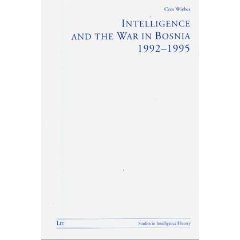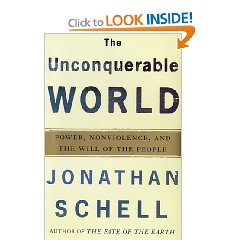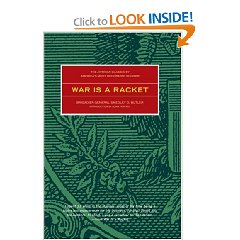This book is earth-shattering and faith-shaking, a well-documented tale of deceit at the highest levels of the US government. So controversial and potentially explosive are the findings of this book, to wit, that the White House recovered most of the Nazi and Japanese loot and created a secret slush fund for covert political operations world-wide, that the authors go the extra mile and offer, at a nominal price, two CD-ROMS containing 60,000 pages of supporting documentation including the Japanese treasure maps used by the US to recover the gold and other valuables.Major players include Presidents Truman, Eisenhower, and Nixon, both Allen and John Foster Dulles, Douglas MacArthur, John McCloy, and the famous unconventional warrior Edward Lansdale. What we learn from this book is that those writing about “blowback” (the consequences of unwise US actions) have barely scratched the surface. What we learn is that rather than truly seeking to help the Japanese, Chinese, and other looted nations recover in the aftermath of WWII, the most senior leaders of the US government, no doubt with the best of intentions, actually conspired with Nazi bankers and the Japanese imperial family to create a Black Eagle Trust controlled by a very select hand-picked cabal in Washington.
Originally used to fight communism, the Black Eagle Trust, according to the authors and as thoroughly documented by the book and the two CD-ROMS (which I am happy to have in hand), quickly became a global slush fund used to bribe national leaders and manipulate elections around the world. This fund remains in existence today, making the Swiss Holocaust funds seem like loose-change. According to the authors, major banks are “addicted” to the funds and would face collapse if public investigations resulted in a forced return of this gold and related certificates to the rightful owners.
The authors have produced a magnificent work of both scholarship and investigative journalism. They document the extent of Japanese looting of Korea (beginning in 1895) and China as well as the other countries in the “co-prosperity sphere.” They document the manner in which Japan hid most of the gold in the Philippines (some in Indonesia), and were forced to leave it there from 1943 onwards, when US submarine interdiction became too effective to risk shipments homeward.
I found the level of detail in this book to be quite gripping. The ingenious nature of the Japanese burial sites, with caverns below the more obvious tunnels, with sea-water protection, with maps created in reverse–and the in-bred cruelty of the Japanese, thinking nothing of burying all of the US and other national slave labor *and the Japanese engineers* alive as the final stage of protecting the looted treasure, leave one stunned.
The authors document the central role played by Lansdale in recognizing the opportunity and then briefing MacArthur and then President Truman. According to the authors, the architects of the Black Eagle Trust were three advisors to President's Roosevelt's Secretary of War, Henry Stimson: John McCloy (later head of the World Bank), Robert Lovett (later Secretary of Defense), and Robert Anderson (later Secretary of the Treasury). They made the case to Roosevelt, and presumably to Truman after Roosevelt died, that it would be impractical to return the looted gold to the rightful owners, in part because many of the looted countries were now under Soviet control.
The authors, who conducted many interviews in support of the work, including interviews of former CIA deputy director Ray Cline, who they say was involved with Lansdale and the gold in the 1940's and remained involved with the black gold through the 1980's, provide copies of documents showing the redirection of the looted gold to 176 bank accounts in 42 countries. The gold was then used to support the creation of gold bearer certificates that were in turned used to bribe the most senior officials around the world.
The authors tell a shocking tale of how quickly MacArthur chose to collaborate with the very leadership of Japan that declared war on the USA and was responsible for genocide and looting in Asia on a scale rarely achieved by anyone else. Bringing the story up to date, the authors show how prior attempts to investigate the Black Eagle Trust have led to the ruin of individuals such as Norbert Schlei, at one time deputy attorney general to Presidents Kennedy and Johnson. While I have no direct knowledge and cannot be certain myself, I believe the authors have provided a sufficiently compelling case to warrant an international investigation concurrently with a General Accounting Office investigation to be chartered by Congress with unlimited supeona powers specifically directed against classified personalities and archives.
If this story is true, and I personally think that it is, then the US government, in active collusion with the very people the American people fought to defeat in WWII, has been guilty of fraud and depravity on a global scale and against the best interests of both the American people, and the against the rightful owners of the looted gold and other treasures. The authors may well have uncovered the last really big secret of the post-WW II era, and in so doing, opened the way for a restoration of the balance of power among diverse nations, and a sharp delimitation of the abuses that appear to characterize American leadership when it thinks it can rely on secret gold and stolen oil to engage in imperial adventures and domestic improprieties. As an American citizen and voter, and as a person of faith who believes that we must do unto others as we would have them do unto us, I find this book to be shocking, credible, and a basis for popular outrage and demands for truth and reconciliation.
UPDATE: The below links have NOT been tested.
CD1) https://drive.google.com/drive/folders/1BhNOJWR2I3oYrmCZV2mrBhq3ff2xY8gh?usp=sharing
CD2) https://drive.google.com/drive/folders/1sLqiNhnW1fN_u1DM5ZOPiR3XzL1y9BZe?usp=sharing
CD3) https://drive.google.com/drive/folders/1YYaIlVqHW8RJWUd6eRIqSbaefJNAC17p?usp=sharing










